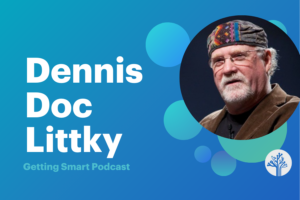1:1 programs
An Update on Apple in Education
Apple in Education has come a long way with over 8 million iPads purchased by schools and colleges - 4.5 million by K-12 schools in the U.S. and with more than 75,000 learning apps now in the Apple store.
Infographic: Tapping into Mobile Technology
The infographic highlights findings from the mobile learning report, Living & Learning with Mobile Devices, released today from Grunwald & Associates and the Learning First Alliance.
Students Believe in Mobile Devices
Technology is transforming education and nine in ten students agree it's changing the way they learn. According to a Harris Interactive study completed on behalf of Pearson, students understand mobile devices will change their education experience, make learning more fun and want to see more of devices used in their classrooms.
My Big Adventure with BYOD
I’m not exactly a newcomer to BYOD (bring your own device) teaching. And I’m no stranger to sneaking it in under the radar either. At the moment, I’m testing various devices with my fifth and sixth-graders, with the blessing of my students’ parents, my technology support team, and my administration. I’ve learned a few things in the process.
Q&A With a Rural Superintendent
Oklahoma Chief Janet Barresi points to Howe High School in Southeastern Oklahoma as a digital learning leader. Superintendent Scott Parks leads a 1:1 district that makes extensive use of online learning. "It is amazing what they are accomplishing," said Barresi. The state board will be visiting Howe this month.
After Fulfilling 30,000 Wishes, DigitalWish is Just Getting Started
Digital Wish is the edtech DonorsChoose. They have fulfilled more than 30,000 classroom wishes, mostly 1:1 classroom deployments with Dell netbooks.
Is 1:1 the New One Size Fits All?
Earlier this week I was having dinner with some fellow educational technologists. The conversation took the inevitable turn to discussing 1:1 philosophy. 1:1 is most typically defined as the ratio of one student to one device where that device is provided by the school. During our discussion, the question was posed as “1:1, Chromebooks or iPads?” While I am a fan of both Chromebooks and iPads, I was troubled by this conversation. Not, of course, because I am opposed to the student use of technology, but because I am starting to realize that 1:1 is a parallel philosophy to “one size fits all.”
4 Steps to Making BYOD Work
Just a few years ago, the “smart money” for school districts was on 1:1 computing where schools issued each student a laptop. While there is a role for 1:1 initiatives, increasingly the dialogue has evolved to bring-your-own-device (BYOD), which focuses on the use of student-owned mobile devices, and for good reason. Research shows that “active learners” (students who have grown up with technology and expect it to be readily available) want to bring their own devices to school – and are driving changes in mobile phone use policies.
Calling All Resources: Fostering the Right Time to Write
Creating the ultimate writing atmosphere that inspires students to produce their very best level has always coincided with a constant search, a continual revamping, and an open platform for students’ suggestions. As a collective writing community, Studio 113 students and I seek the most powerful writers’ tools; they may range from Stephen King’s On Writing to the soothing writers’ website OmmWriter to a simple online dictionary. During this incessant quest, we remain open to any ideas that will help us produce a setting conducive to crafting excellent, heartfelt prose, rhetoric, and poetry. In essence, we seek to create originals, and fostering the right time to write requires a number of resources.
e-Learning Leadership: 10 Strategies
The 17th annual Educational Technology Leadership Conference will take place this week in Roanoke, Virginia. The conference is sponsored by Virginia Tech’s Center for Instructional Technology Solutions in Industry and Education. Given the theme of e-learning leadership, I’ll be leading a conversation about these ten practices: 1.Conversation: lead…










